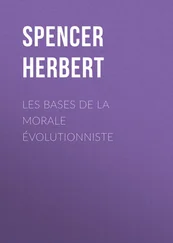Herbert Spencer - First Principles
Здесь есть возможность читать онлайн «Herbert Spencer - First Principles» — ознакомительный отрывок электронной книги совершенно бесплатно, а после прочтения отрывка купить полную версию. В некоторых случаях можно слушать аудио, скачать через торрент в формате fb2 и присутствует краткое содержание. Жанр: Философия, foreign_antique, foreign_prose, на английском языке. Описание произведения, (предисловие) а так же отзывы посетителей доступны на портале библиотеки ЛибКат.
- Название:First Principles
- Автор:
- Жанр:
- Год:неизвестен
- ISBN:нет данных
- Рейтинг книги:5 / 5. Голосов: 1
-
Избранное:Добавить в избранное
- Отзывы:
-
Ваша оценка:
- 100
- 1
- 2
- 3
- 4
- 5
First Principles: краткое содержание, описание и аннотация
Предлагаем к чтению аннотацию, описание, краткое содержание или предисловие (зависит от того, что написал сам автор книги «First Principles»). Если вы не нашли необходимую информацию о книге — напишите в комментариях, мы постараемся отыскать её.
First Principles — читать онлайн ознакомительный отрывок
Ниже представлен текст книги, разбитый по страницам. Система сохранения места последней прочитанной страницы, позволяет с удобством читать онлайн бесплатно книгу «First Principles», без необходимости каждый раз заново искать на чём Вы остановились. Поставьте закладку, и сможете в любой момент перейти на страницу, на которой закончили чтение.
Интервал:
Закладка:
IX. Æsthetic Progress. – The Fine Arts similarly dealt with: tracing their gradual differentiation from primitive institutions and from each other; their increasing varieties of development; and their advance in reality of expression and superiority of aim.
X. Moral Progress. – Exhibiting the genesis of the slow emotional modifications which human nature undergoes in its adaptation to the social state.
XI. The Consensus. – Treating of the necessary interdependence of structures and of functions in each type of society, and in the successive phases of social development. 4 4 Of this treatise on Sociology a few small fragments may be found in already-published essays. Some of the ideas to be developed in Part II. are indicated in an article on “The Social Organism,” contained in the last number of the Westminster Review ; those which Part V. will work out, may be gathered from the first half of a paper written some years since on “Manners and Fashion;” of Part VIII. the germs are contained in an article on the “Genesis of Science;” two papers on “The Origin and Function of Music” and “The Philosophy of Style,” contain some ideas to be embodied in Part IX.; and from a criticism of Mr. Bain’s work on “The Emotions and the Will,” in the last number of the Medico-Chirurgical Review , the central idea to be developed in Part X. may be inferred.
Part I. The Data of Morality. – Generalizations furnished by Biology, Psychology and Sociology, which underlie a true theory of right living: in other words, the elements of that equilibrium between constitution and conditions of existence, which is at once the moral ideal and the limit towards which we are progressing.
II. The Inductions of Morality. – Those empirically-established rules of human action which are registered as essential laws by all civilized nations: that is to say – the generalizations of expediency.
III. Personal Morals. – The principles of private conduct – physical, intellectual, moral and religious – that follow from the conditions to complete individual life: or, what is the same thing – those modes of private action which must result from the eventual equilibration of internal desires and external needs.
IV. Justice. – The mutual limitations of men’s actions necessitated by their co-existence as units of a society – limitations, the perfect observance of which constitutes that state of equilibrium forming the goal of political progress.
V. Negative Beneficence. – Those secondary limitations, similarly necessitated, which, though less important and not cognizable by law, are yet requisite to prevent mutual destruction of happiness in various indirect ways: in other words – those minor self-restraints dictated by what may be called passive sympathy.
VI. Positive Beneficence. – Comprehending all modes of conduct, dictated by active sympathy, which imply pleasure in giving pleasure – modes of conduct that social adaptation has induced and must render ever more general; and which, in becoming universal, must fill to the full the possible measure of human happiness. 5 5 Part IV. of the Principles of Morality will be co-extensive (though not identical) with the first half of the writer’s Social Statics .
In anticipation of the obvious criticism that the scheme here sketched out is too extensive, it may be remarked that an exhaustive treatment of each topic is not intended; but simply the establishment of principles , with such illustrations as are needed to make their bearings fully understood. It may also be pointed out that, besides minor fragments, one large division ( The Principles of Psychology ) is already, in great part, executed. And a further reply is, that impossible though it may prove to execute the whole, yet nothing can be said against an attempt to set forth the First Principles and to carry their applications as far as circumstances permit.
The price per Number to be half-a-crown; that is to say, the four Numbers yearly issued to be severally delivered, post free, to all annual subscribers of Ten Shillings.
This Programme I have thought well to reprint for two reasons: – the one being that readers may, from time to time, be able to ascertain what topics are next to be dealt with; the other being that an outline of the scheme may remain, in case it should never be completed.
The successive instalments of which this volume consists, were issued to the subscribers at the following dates: – Part I. (pp. 1–80) in October, 1860; Part II. (pp. 81–176) in January, 1861; Part III. (pp. 177–256) in April, 1861; Part IV. (pp. 257–334) in October, 1861; Part V. (pp. 335–416) in March, 1862; and Part VI. (pp. 417–504) in June, 1862.
London, June 5th, 1862PART I.
THE UNKNOWABLE
CHAPTER I.
RELIGION AND SCIENCE
§ 1. We too often forget that not only is there “a soul of goodness in things evil,” but very generally also, a soul of truth in things erroneous. While many admit the abstract probability that a falsity has usually a nucleus of reality, few bear this abstract probability in mind, when passing judgment on the opinions of others. A belief that is finally proved to be grossly at variance with fact, is cast aside with indignation or contempt; and in the heat of antagonism scarcely any one inquires what there was in this belief which commended it to men’s minds. Yet there must have been something. And there is reason to suspect that this something was its correspondence with certain of their experiences: an extremely limited or vague correspondence perhaps; but still, a correspondence. Even the absurdest report may in nearly every instance be traced to an actual occurrence; and had there been no such actual occurrence, this preposterous misrepresentation of it would never have existed. Though the distorted or magnified image transmitted to us through the refracting medium of rumour, is utterly unlike the reality; yet in the absence of the reality there would have been no distorted or magnified image. And thus it is with human beliefs in general. Entirely wrong as they may appear, the implication is that they germinated out of actual experiences – originally contained, and perhaps still contain, some small amount of verity.
More especially may we safely assume this, in the case of beliefs that have long existed and are widely diffused; and most of all so, in the case of beliefs that are perennial and nearly or quite universal. The presumption that any current opinion is not wholly false, gains in strength according to the number of its adherents. Admitting, as we must, that life is impossible unless through a certain agreement between internal convictions and external circumstances; admitting therefore that the probabilities are always in favour of the truth, or at least the partial truth, of a conviction; we must admit that the convictions entertained by many minds in common are the most likely to have some foundation. The elimination of individual errors of thought, must give to the resulting judgment a certain additional value. It may indeed be urged that many widely-spread beliefs are received on authority; that those entertaining them make no attempts at verification; and hence it may be inferred that the multitude of adherents adds but little to the probability of a belief. But this is not true. For a belief which gains extensive reception without critical examination, is thereby proved to have a general congruity with the various other beliefs of those who receive it; and in so far as these various other beliefs are based upon personal observation and judgment, they give an indirect warrant to one with which they harmonize. It may be that this warrant is of small value; but still it is of some value.
Читать дальшеИнтервал:
Закладка:
Похожие книги на «First Principles»
Представляем Вашему вниманию похожие книги на «First Principles» списком для выбора. Мы отобрали схожую по названию и смыслу литературу в надежде предоставить читателям больше вариантов отыскать новые, интересные, ещё непрочитанные произведения.
Обсуждение, отзывы о книге «First Principles» и просто собственные мнения читателей. Оставьте ваши комментарии, напишите, что Вы думаете о произведении, его смысле или главных героях. Укажите что конкретно понравилось, а что нет, и почему Вы так считаете.












